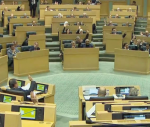The government remains unable to spend the $2.5 billion from the GCC countries and even slowed down by 23 per cent its scheduled allocations.
While the obvious answer is the lack of technical capacity to write terms of reference and tender projects, the real answer underscores the fact that Jordanian Cabinets do not do development and have not been doing development for a decade, a scary thought.
The GCC funds came for the private sector to spur development in Jordan.
The idea is that the money is spent to upgrade the infrastructure of the country through projects and partnerships with the private sector, and thus enhance income and welfare to levels commensurate with those in the GCC countries.
Consequently, this type of aid is different from the aid typically received by Jordan: It is neither a budget support, which the government can easily spend, nor a programme designed by some aid agency.
Some may think that such a claim is too radical or even outlandish; however, it may be a simple summary description of the status quo.
Let me first start with a definition of development, and here I refer to the guru, Amartya Sen.
He linked development to the improvement in humans by freeing them from fear (economic, social, political, etc…) and in his book, “Development as Freedom”, he linked the two concepts “freedom” and “development” into one paradigm.
Underlying development — of society, state, institutions — must ensure that they guarantee the individual access to proper health, nutrition, living conditions and education/training.
Concomitantly, such institutions should ensure that the individual is enabled to pursue a productive and gainful life; he must be able to employ his training and earn a decent living under safe conditions.
Underpinning this equation is spending on health, education and vocational training.
Jordan ranks badly in these areas. And even if some choose to brag about spending rates on health and education (vocational training is almost null), the state of both is dismal by most standards. Government budgetary allocations simply pay salaries, pensions and interest on the government accumulated debt. Very little, if anything, goes to maintenance and upkeep, never mind improvement and enhancement of the nation’s health and education systems.
The same goes for the country’s infrastructure (50 per cent of water is lost to the old, dilapidated networks, not the Syrian refugees).
Water is scarce and the Disi water project had been on the planning table since 1978.
In fact, the government has relegated over the last decade the function of development to the donor community, whereby financing depends on the generosity and agenda of donors together with their expertise and knowledge dictating what can or cannot be done.
And thus, the government lost its developmental role. It is no longer an enabler or promoter, but simply a regulator.
Hence, when the government receives funds that are marked for development, it really does not know here to start from. It simply has had no idea for a decade now.
The institutional memory is gone, expertise no longer exists and everything it does has to be from scratch, with a very steep learning curve.
Therefore, when spending from the GCC funds is slow, it is because past and present governments in Jordan were not hired to do development, a sad conclusion.
The solution is, of course, to give the World Bank or some other equally credible aid agency the oversight on administering and spending the funds.
This would address the lack of mindset, paradigm, mandate, capacity and championship required for development.














